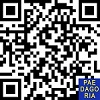STRATEGIC MARKETING MANAGEMENT OF ISLAMIC EDUCATIONAL INSTITUTIONS IN THE DIGITAL ERA
Abstract
The decline in student enrollment at Islamic educational institutions has become a serious challenge in maintaining both their existence and educational quality, including at SMP Qur’an As-Salam Pekanbaru. This condition requires structured, systematic, and adaptive marketing management that responds to social, cultural, and technological developments. Therefore, this study aims to analyze the implementation of marketing management based on the Planning, Organizing, Actuating, and Controlling (POAC) framework in enhancing the attractiveness and image of the institution. This research employed a descriptive qualitative approach, with data collected through in-depth interviews, direct observation, and documentation. The research subjects consisted of school leaders, administrators, teachers, and parents who were actively involved in marketing strategies. Data analysis was carried out through data reduction, data display, and conclusion drawing, while maintaining validity through source and method triangulation. The results of the study indicate that marketing planning at SMP Qur’an As-Salam is designed based on its Qur’anic vision and mission, emphasizing Islamic character education, Qur’an memorization, and academic quality. In terms of organizing, the institution established a special team responsible for promotional activities, both conventional and digital. The implementation of strategies combined direct promotion (social gatherings, brochures, banners, community activities) with digital promotion (social media, websites, and educational content). Evaluation or controlling was conducted periodically through monthly and annual meetings, which assessed the effectiveness of promotional media, enrollment levels, and community satisfaction. Although the POAC-based strategy has proven effective in improving the school’s image and community interest, its effectiveness is reflected in the increasing number of inquiries and student registrations, higher community participation in school activities, and more positive feedback from parents and stakeholders. the study also found limitations, including weak digital media management, lack of innovation in promotional content, and limited promotional facilities. These factors reduce the institution’s competitiveness amid the increasingly intense landscape of Islamic education. In conclusion, the application of POAC-based marketing management at SMP Qur’an As-Salam has been effective in strengthening institutional identity despite the decline in enrollment. However, improvements are still needed in digital marketing, market research, and external collaboration. This study recommends continuous innovation, training in digital media management, and collaborative strategies with stakeholders to expand outreach and ensure the sustainability of Islamic educational institutions in the modern era.
Keywords
Full Text:
PDFReferences
Abdurrahman, A., Baharuddin, B., & Hady, M. S. (2025). Change Management Strategies for Enhancing Education Quality at Islamic Boarding School. AL-ISHLAH: Jurnal Pendidikan, 17(1), 930–941. https://doi.org/10.35445/alishlah.v17i1.6009
Abidin, Z. (2020). Educational Management of Pesantren in Digital Era 4.0. Jurnal Pendidikan Agama Islam, 17(2), 203–216. https://doi.org/10.14421/jpai.2020.172-07
Adamba, C. (2020). Understanding High School Students’ University Choice: Implications for Marketing and Management of Higher Education in Ghana. In Higher Education Marketing in Africa. Springer Internationa Publishing. https://doi.org/https://doi.org/10.1007/978-3-030- 39379-3_3
Apriyanto, N., & Hidayati, D. (2022). Student Integrative Islamic Boarding School Education Management Model. International Journal of Educational Management and Innovation, 3(2), 210–224. https://doi.org/10.12928/ijemi.v3i2.5804
Bin Lahuri, S., Aniys Nur Fuadah, R., & Amalia Zuhroh, A. (2024). Empowering Islamic Boarding Schools’ Business Units: a Digital Marketing Optimization Model. Jurnal Ekonomi Dan Bisnis Islam (Journal of Islamic Economics and Business), 10(2), 409–434. https://doi.org/10.20473/jebis.v10i2.65069
Budiarti, E., & Amin, N. F. (2025). Marketing Strategy Implementation in Islamic Boarding Schools: A Study of 7P Marketing Mix in Blitar, Indonesia. Journal of Nonformal Education, 11(1), 53–63. https://doi.org/10.15294/jone.v11i1.22746
Bulbul Afrin, A., & Mohiuddin, M. G. (2024). Total Quality Management. In Islamic Operations Management. Routledge. https://doi.org/https://doi.org/10.4324/9781003289050-9
Chaffey, D., & Ellis-Chadwick, F. (2019). Digital marketing. Pearson Education Inc.
DiMartino, C., & Jessen, S. B. (2016). School Brand Management. Urban Education, 31(5), 447–475. https://doi.org/https://doi.org/10.1177/0042085914543112
Elyati, E. (2024). The Impact of Globalisation on Strategy. CONCIENCIA: Journal of Islamic Education, 24(1), 165–174. https://doi.org/10.1093/survival/40.4.5
Fachri, M., Hefniy, H., Qodriyah, K., & Yakini, L. (2022). Market Segmentation Based on Community Involvement At the Nurul Jadid Islamic Boarding School. Managere: Indonesian Journal of Educational Management, 4(1), 59–69. https://doi.org/10.52627/managere.v4i1.91
Hadi, A., & Lari, M. T. (2024). Designing a Qualitative Model of Knowledge Creation with an Innovative Approach in North Khorasan Islamic Azad Universities. Iranian Journal of Educational Research, 3(4), 179–196. https://doi.org/https://doi.org/10.22034/3.4.179
Hasanah, U., Marisa, H., & Mayee, A. (2025). Integration of Pesantren Curriculum , Tahfidz Curriculum and National Curriculum. IJIBS: International Journal of Islamic Boarding School, 3(1), 25–36.
Hemsley-Brown, J. (2023). Brand identity and digital transformation. In Business Digitalization. Routledge. https://doi.org/https://doi.org/10.4324/9781003401285-2
Hirzulloh, M. F. (2023). Dialectics Of Traditional Pesantren Education System In the era of society 5.0. … Islami: Jurnal Pendidikan Islam, 433–454. https://jurnal.staialhidayahbogor.ac.id/index.php/ei/article/view/5123
Hishnuddin, A., & Jazilurrahman. (2025). Transformative Islamic Education : The Role of Qur ’ anic Value Internalization in Building Santri ’ s Religious Character. Journal of Educational Management Research, 04(05), 1643–1654. https://serambi.org/index.php/jemr/article/view/1153
Iffah, F., & Fauziyah, Y. (2019). Marketing Management of Boarding School in Increasing Community Interest. Nidhomul Haq: Jurnal Manajemen Pendidikan Islam, 6(2), 309–322. https://e-journal.uac.ac.id/index.php/nidhomulhaq/article/view/1574
Ikhwan, A., Zukhrufin, F. K., & Triyuliasari, A. (2025). Integrated Islamic School Marketing Management in Indonesia: Competitive or Business Oriented? Munaddhomah, 6(2), 174–191. https://doi.org/10.31538/munaddhomah.v6i2.1759
Imroni, M. H. (2024). Strategic Transformation In Islamic Boarding School Education Marketing: Optimizing Digital Potential And Social Networks. Proceeding ICEM, 4(2), 7823–7830.
Jaenal Mutakin, U., Tihami, M., & Qurtubi, A. (2024). Marketing Management Strategies of Islamic Education Services to Enhance Customer Loyalty: A Case Study of State Islamic Senior High Schools. International Journal of Science Education and Cultural Studies, 3(2), 27–37. https://doi.org/10.58291/ijsecs.v3i2.244
Jallow, A. S. (2023). The Role of Islamic Boarding School Education in Character Formation (Perspective of Islamic Psychology). Al Misykat : Journal of Islamic Psychology, 1(1), 63–72. https://doi.org/10.24269/almisykat.v1i1.6810
John, S. P., & De Villiers, R. (2024). Factors affecting the success of marketing in higher education: a relationship marketing perspective. Journal of Marketing for Higher Education, 34(2), 875–894. https://doi.org/https://doi.org/10.1080/08841241.2022.2116741
Kartiko, A., & Rohmania, N. R. (2025). Strategy To Increase Student Interest Through Service Quality , Promotion , And Islamic Education. 18(1), 151–166.
Kemal, I., Arlita, F., & Aktar, S. (2023). Participatory Leadership of The Principal in Improving Teacher Competence. Journal for Lesson and Learning Studies, 6(2), 228–237. https://doi.org/10.52690/jswse.v4i3.571
Kotler, P., Keller, K. L., & Chernev, A. (2022). Marketing Management. Pearson Education.
Kotler, P., Keller, K. L., & Chernev, A. (2023). Marketing Management (16th ed.). Pearson Education.
Labib, A. (2022). Tahadduts bi al-ni’mah Perspektif Quraish Shihab dalam Tafsir al-Misbah dan Relevansinya terhadap Pelaku Flexing. Kontemplasi: Jurnal Ilmu-Ilmu Ushuluddin, 10(1), 153–171. https://doi.org/https://doi.org/10.21274/kontem.2022.10.1.153-171
Okolie, U. C., Omole, O. G., & Yakubu, A. (2021). Leadership and Effective Human Resource Management in Organization. RUDN Journal of Public Administration, 8(3), 277–296. https://doi.org/10.22363/2312-8313-2021-8-3-277-296
Risuhawianto, I., & Yuliana, L. (2024). The Role of Instagram as an Agent for Socialization in Integrated Islamic School at SMP IT Abu Bakar Yogyakarta: A Netnography Study. Jurnal Etnografi Indonesia, 9(2), 29–41. https://journal.unhas.ac.id/index.php/etnosia/article/view/19610
Rohidin, R., & Nugraha, D. H. (2025). Islamic boarding school marketing strategy to increase the number of new students at North Darul Rasyid Raman Islamic Boarding School. International Journal of Islamic Education and Science Research, 10(1), 22–35. Link
Rosita, R., Ilyasin, M., Jurnal, A. M.-T. W. T., & 2024, undefined. (2024). Pesantren as a Community-Based Islamic Educational Institution. Journal.Uinsi.Ac.Id, 11(3), 287–302. https://journal.uinsi.ac.id/index.php/Tarbiyawat/article/view/9235
Sari, S. P., Lestari, L., & Zulkifli, Z. (2025). Strategy Development Model Management as an Implication of Agent of Change in Pesantren-Based Schools. Jurnal Inovasi Pendidikan Dan Sains, 6(1), 132–138. https://doi.org/10.51673/jips.v6i1.2472
Setyaningsih, R., Aryo Ramadhan, M., Ulfa, M., & Fauziah, N. (2025). Curriculum Integration in Islamic Boarding School: A Case Study of Al-Ihsan Boarding School, Riau. Nadwa Jurnal Pendidikan, 19(1), 65–84.
Shams, A., Sadeghvaziri, F., Norouzi, H., & Falatoon Nejhad, F. (2024). Investigating the Effect of Institution Reputation on Student Loyalty’s Dimensions in the Framework of Relationship Marketing in Higher Education. Journal of Relationship Marketing, 23(4), 244–271. https://doi.org/https://doi.org/10.1080/15332667.2024.2348206
Sonmez Cakir, F., & Adiguzel, Z. (2020). Analysis of Leader Effectiveness in Organization and Knowledge Sharing Behavior on Employees and Organization. SAGE Open, 10(1). https://doi.org/10.1177/2158244020914634
Thoif, M., & Sudjanto, B. (2020). Education management in islamic educational institutions in moslem minority areas (Case study of Islamic education foundation in Jayawijaya district). International Journal of Advanced Science and Technology, 29(4), 1541–1545.
Tobroni. (2018). Percepatan Peningkatan Mutu Madrasah Sebagai Sub Sistem Pendidikan Nasional. Jurnal Majelis, 3(3), 31–46.
Yuwanda, T., Fadhlan, A., & Bundo, M. (2023). Digitalization of Pesantren: A Perspective From Human Capital. DAYAH: Journal of Islamic Education, 6(1), 29. https://doi.org/10.22373/jie.v6i1.15973
Zulkarnain, L. (2023). The Role of Pesantren Leaders in the Digital Age. Journal of Multi-Disciplines Science (ICECOMB), 1(1), 16–27. https://doi.org/10.59921/icecomb.v1i1.13
DOI: https://doi.org/10.31764/paedagoria.v16i4.34164
Refbacks
- There are currently no refbacks.
Copyright (c) 2025 Nur Amelliany Rosadi

This work is licensed under a Creative Commons Attribution-ShareAlike 4.0 International License.
Paedagoria : Jurnal Kajian, Penelitian dan Pengembangan Kependidikan
Fakultas Keguruan & Ilmu Pendidikan | Universitas Muhammadiyah Mataram.
_______________________________________________
 | Paedagoria : Jurnal Kajian, Penelitian dan Pengembangan Kependidikan |
______________________________________________
CURRENT INDEXING:
EDITORIAL OFFICE:


















